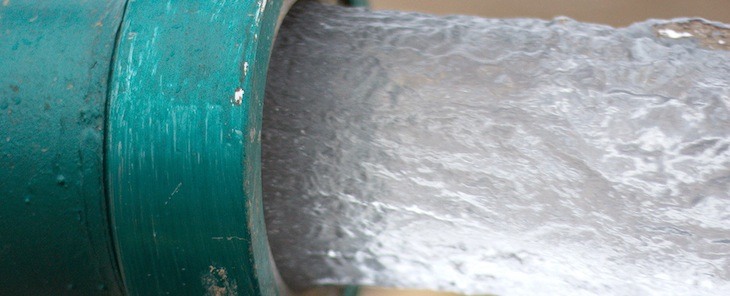Fort Smith water leaks rise, with COVID and supplies getting partial blame
by September 15, 2021 5:02 pm 1,100 views

Despite the Fort Smith Board of Directors approving funding for additional equipment and personnel in 2019 in hopes of catching up on repair of the many water leaks across the city, the list of water leaks is higher now than last year.
Fort Smith Utilities Director Lance McAvoy told Fort Smith Directors in February 2020 the utility department had repaired 70% of the city’s reported leaks with only 212 reported leaks left to repair. The hope was old repairs would be fixed in a timely manner, and then the department would only have to focus on new water meter installations, repairing newly reported leaks and preventative maintenance on the water system. At that time all the equipment the board approved to purchase in August 2019 had not yet arrived and though some employees had been hired, there were still vacancies.
In February 2019, board approved hiring 10 additional employees for the water and sewer department who would join the 17 department employees employed to create nine three-person teams working to fix the 700 leaks in the city’s water system as well as taking care of new leaks reported to the department. The new equipment needed for the additional teams was approved in August 2019. At that time, directors were told the department hoped to be caught up on the leaks within 18 months. In November 2019, there were about 700-800 active leaks in the city, according to McAvoy.
Though some progress has occurred in the 19 months since February 2020, the city has 279 active leaks on the the pending leak list, some that have been on the list since 2017, McAvoy told directors Tuesday (Sept. 14.)
“(In 2019,) we were looking at 18 months to get caught up. But we ran into something called COVID and we ran into some employment issues,” McAvoy said.
When fully staffed, the department will be able to run 10 crews repairing leaks and installing new services, McAvoy said. The department only has three to four crews working on the leaks and new service at any given time. There were 18 vacancies in the department in August, McAvoy said, noting the lowest number of vacancies this year was in May when there were 14.
In 2020, the city had 607 reported leaks, and the city fixed 685. As of 8 a.m. Monday (Sept. 13) there had been 120 leaks added to the report in 2021, and the department has repaired 404 this year.
“I’ll let you know. I want to be 100% transparent. I looked at the leak list today. We have six or seven leaks on the list from 2017,” McAovy said.
Three were fixed Tuesday.
One problem is that some new leaks that could wait are getting fixed immediately because crews inspect them and realize they can fix it at that time, and the older leaks remain on the list, McAvoy said.
“I’ve instructed staff that we’ll still go out and investigate the leaks that you guys send to me, but they are going to start tackling those older leaks first because those customers have been so patient,” McAvoy said.
In August, the department repaired 37 leaks. Of those, 16 were leaks on the pending list and 23 were newly reported leaks. Eight leaks were added to the pending list in August. There 32 new water service installations in the month, McAvoy said, noting the same crews who are repairing leaks are installing new services. Materials are also limited for leaks and new services, which adds to the issue, McAvoy said.
“This is probably the No. 1 thing I get asked about,” said Director Neal Martin. “We’ve appropriated the dollars, we’ve got to spend the dollars. … When I joined the board in 2019, this was one of the first things we appropriated money for.”
There might be an answer to speed up clearing the list of needed repairs, McAvoy said. The department has an accrual of funds available because of the personnel openings, which could be used for contract work. The city has used contract services for leak repair that did not work as well as hoped. McAvoy said the new contracting system would work better than in the past.
“We have looked at, for lack of a better term, an on-call leak contract,” McAvoy said.
The city would only pay for leaks that are repaired and only pay after inspecting the leaks to make certain they were repaired correctly with the correct materials. McAvoy estimates it would cost approximately $3 million to repair 500 leaks, but right now the city only has about 300 leaks in need of repair.
“It’s not a, ‘here’s a check for $3 million. Here are 500 leaks. Go fix it. … It’s a pay for each leak. At the end of each month, we would get a bill for the previous month’s leaks. We would sign off. It could help us catch up on the backlog,” McAvoy said.
In February 2019, then Utilities Director Jerry Walters said hiring the additional personnel would allow the department to repair leaks with in-house personnel rather than outsourcing, which would save the city approximately $2 million. The additional personnel was estimated to cost the city $409,310 annually.
